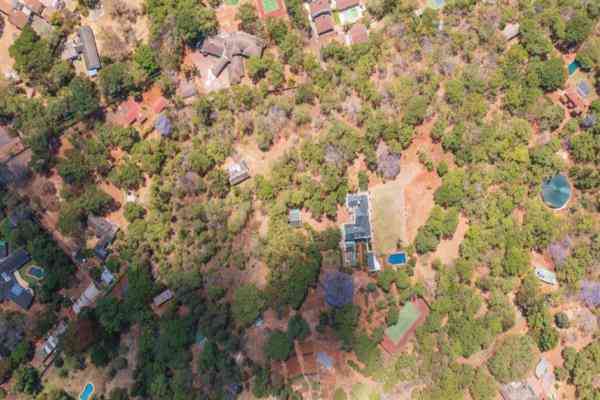
IN 2024, the Zimbabwean property market is poised to witness distinct trends within each sector. The residential segment will continue to prioritise affordable housing, spurred by increased government support and greater private-sector involvement.
The commercial real estate sector, particularly in urban centres, will likely experience a gradual recovery as businesses adapt to post-pandemic operational changes.
The demand for affordable housing will persist and is expected to rise, with a specific emphasis on smaller units and flexible payment options.
The supply-demand gap continues to widen due to population growth, particularly in the outskirts of major cities and satellite towns where development activity is currently concentrated.
Transactions within the residential sector were limited in 2023, and this trend is likely to continue into 2024. The majority of transactions will involve the sale of residential stands and high-density properties, typically priced around an average of US$30 000.
In terms of rental values, high-density properties tend to provide a higher return on investment compared to low and medium-density properties. With the guidance of credible and competent property consultants, investing in land development and housing units within high-density areas is an option to consider due to its higher investor returns potential.
The commercial sector presents a mixed outlook for 2024. While rental growth and demand for rental space are evident in the market, there is a noticeable trend of large corporations gravitating towards owner-occupied premises, moving away from renting CBD office spaces. Conversely, government parastatals are consolidating their presence within the CBD, and small and medium-sized enterprises (SMEs) continue to demand minute office rental spaces. In the retail sector, there is a concerning proliferation of cubical shopping malls in the CBD, which may not be conducive to healthy market dynamics.
Therefore, careful consideration and expert advice should be given to the design and planning of retail property spaces to ensure their long-term viability.
- Mavhunga puts DeMbare into Chibuku quarterfinals
- Bulls to charge into Zimbabwe gold stocks
- Ndiraya concerned as goals dry up
- Letters: How solar power is transforming African farms
Keep Reading
The logistics and warehousing sector is expected to maintain its momentum, driven by increased demand for efficient supply chain management.
However, demand for office spaces within the industrial sector might remain subdued unless hybrid work models are redefined to accommodate evolving trends. Notably, investment in mixed-use developments that combine residential, commercial, and leisure spaces could gain traction, presenting opportunities for forward-thinking investors.
Overall, navigating the Zimbabwean property market in 2024 will require a nuanced understanding of sector-specific dynamics. By aligning investment strategies with the prevailing trends, stakeholders can position themselves advantageously in an evolving property market landscape.
The property valuation trends look set to firm up in 2024 in response to an anticipated slowdown in infrastructure development due to low Foreign Direct Investment (FDI) inflows and the knock-on effects of the introduction of ‘value added tax on bricks’ on the buying power of property investors.
As a result, a low delivery of new properties on the market is forecasted, and demand for available properties is expected to soar, in the process pushing both property rental and property purchase prices up.
Capitalisation rates to remain elastic
The anticipated slowdown in the delivery of new property options to the market due to the collective impact of high lending rates, tax implications on construction raw material costs, inflationary pressures, and policy variations is expected to create increased demand for the few available properties.
On the other hand, dwindling consumer disposable incomes, and shifting property trends, particularly within the office space category will likely weaken capitalisation rates on certain property clusters in 2024.
Juxtaposed, the above scenario paints an unpredictable picture of capitalisation rates for the real estate sector in Zimbabwe. To get the capitalisation rate, we divide the expected net operating income of a property for a full year by the purchase price, assuming the entire building is rented out at market rates.
Informed by economic fundamentals at play, below is a summary of projected capitalisation rates of various property investment categories in Zimbabwe for 2024.
Mortgage landscape
The Zimbabwean mortgage market in 2024 poses unique challenges, owing to the country's complex economic and political landscape. Currently, mortgages represent a minute fraction of the credit issued by the Reserve Bank of Zimbabwe, accounting for only 8,85% of total loans distributed for 2023, as shown in Figure 1 below.
Based on current economic trends and the prevailing policy landscape in Zimbabwe, the 2024 mortgage market faces the following challenges:
Limited access to finance: Banks exercise caution due to elevated lending risks and low deposit mobilization, resulting in restricted availability of mortgages, particularly for low- and middle-income earners.
Currency instability: The presence of multiple currencies in circulation creates uncertainty and hampers long-term financial planning, making banks reluctant to offer long-term mortgage loans, and close to none in local currency.
High-interest rates: USD lending rates ranging from 12% p.a on a short tenure (3 to 5 years) and a high initial deposit framework (50% of property value) rendering mortgages in Zimbabwe prohibitively expensive for borrowers.
Property market dynamics: Limited affordable housing inventory and stagnant property values constrain options for potential buyers and diminish collateral value for lenders.
Diaspora remittances: Zimbabwe is benefitting from substantial remittances from its diaspora population, which could be directed towards real estate, thereby stimulating demand for mortgages.
The 2024 Zimbabwean mortgage market is expected to remain challenging, characterised by limited access, high costs, and uncertainty. However, it is essential to note that Zimbabwe's mortgage market's prospects present challenges and opportunities.
Recommendations for 2024
Adoption of pre-approved mortgages: Encouraging pre-approved mortgages can significantly reduce the gestation period for mortgage applications. Sellers would have already obtained mortgage approval for their properties, facilitating faster transactions and increasing mortgage utilization in the property market.
Adoption of backward integration: Banks should strongly consider implementing a backwards integration strategy by venturing into the development of residential stands, particularly in high-density areas, and offering them for sale through mortgage financing. This approach offers numerous advantages, including providing more affordable housing options for borrowers, reducing their reliance on external financing sources. Additionally, it can potentially enhance profitability for banks through profits accrued from the development process and mortgage-related fees. Banks should thoroughly assess prevailing economic conditions, market demand, and associated risks.
Partnering with registered real estate professionals possessing valuable market expertise is recommended for this initiative's smooth and successful implementation.
Adoption of green mortgages: Financial institutions should proactively embrace the concept of green mortgages as a distinct product offering to promote climate action. Green mortgages can incentivise customers with rewards, such as cashback or favourable interest rates.
These incentives serve a dual purpose: assisting banks in fostering customer loyalty and expanding their market share. They also cater to the emerging segment of environmentally conscious consumers seeking sustainable practices within their homes, such as retrofitting with solar systems.
Green financing strategies can contribute to the country's sustainable development goals and showcase banks' commitment to social responsibility, strengthening their position within the global financial industry and society.
Inclusive requirements for the informal sector: Given the significant contribution of the informal sector to Zimbabwe's economy, banks should adjust mortgage requirements to be more inclusive of informal sector participants. Removing barriers that hinder access to mortgage financing for this sector can unlock its untapped potential and expand the market.
Lengthening the mortgage term: Banks in Zimbabwe should consider extending the mortgage term to increase affordability for borrowers. Longer mortgage terms can result in lower monthly repayments, making homeownership accessible to a broader population segment, particularly considering high interest rates. This measure can stimulate the real estate market, attract more borrowers, and increase economic growth. However, careful consideration of the impact on risk and profitability is necessary.
Implementing these recommendations can contribute towards overcoming some of the challenges faced by Zimbabwe's mortgage market in 2024, enabling improved accessibility, efficiency, and sustainability within the real estate sector.
Other property financing options
Real Estate Investment Trusts (REITs) can be an alternative financing option for real estate ventures. REITs own, operate, or finance income-generating real estate across various property sectors. They can provide an alternative means for real estate developers and property owners to raise capital and finance their projects.
Real estate developers and property owners can raise capital by selling shares of their properties to a REIT. In return, the REIT gains ownership stakes in the properties and the potential for regular income from rental payments and property appreciation.
REITs can finance real estate projects by issuing loans or purchasing mortgage-backed securities.
This can be a source of relatively low-cost capital for real estate developers and property owners. In other jurisdictions, they have REITs that own and operate public infrastructure, an option that Zimbabwe can adopt to address the infrastructure funding gap.
It is important to note that while REITs can provide alternative financing options, they also have specific regulatory requirements and tax considerations that need to be carefully considered.
2024 construction sector highlights
Activity in the construction sector for 2024 will be driven mainly by government-funded infrastructure development projects.
The construction of roads, dams, and upgrades to existing infrastructure will dominate the landscape, with private capital set to dominate the residential and industrial property sectors, respectively.
A trend towards cluster developments and high-rise properties will gain traction beyond significant cities in response to increased demand for limited property stocks amid declining land development opportunities.
The rising costs of raw materials (cement, bricks, etc.) will put a significant premium on growth prospects for the construction sector in 2024.
- Juru is the chief executive officer at Integrated Properties.











